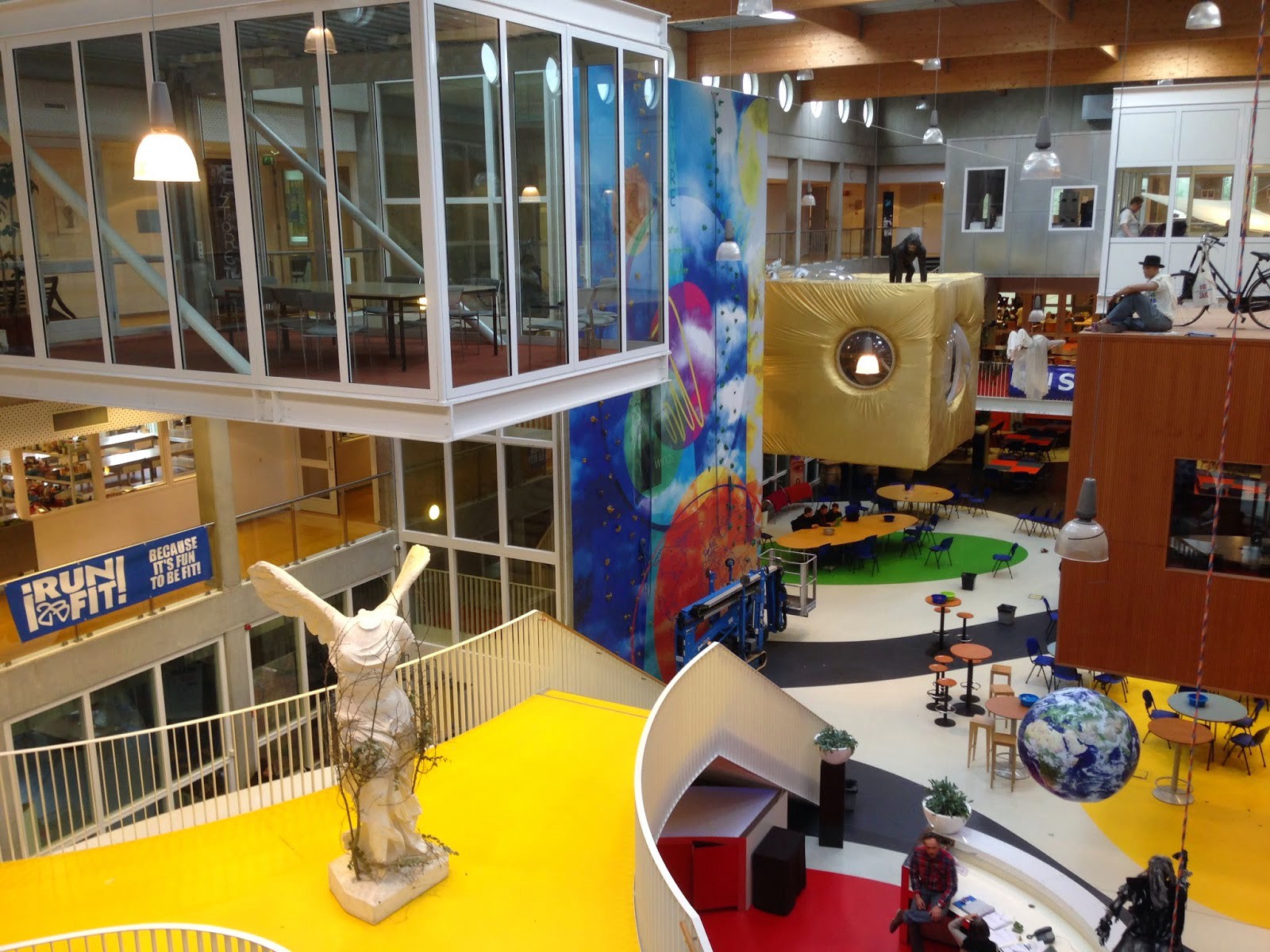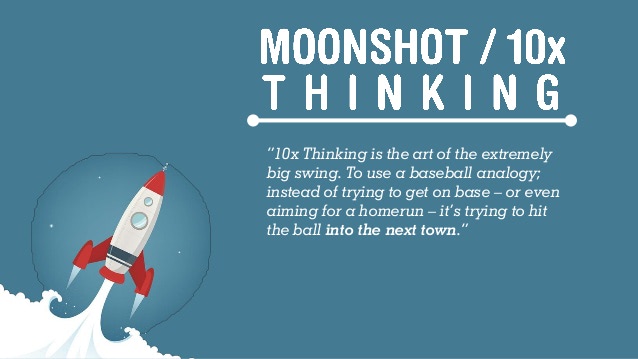Re-imagining #FE – Envisioning the College of the Future #Skills2030

Bold and radical thinking needed as a prerequisite for the #CollegeoftheFuture to be successful
In England alone there are more than 250 Colleges training more than two million people and employing more than 100,000 people (figures from the AoC Key Facts) in a sector generating billions for the UK economy.
The role that Further Education plays in both the supply chain of skills that are critical to the UK economy and equally as community gateways to future life chances is obvious, making their sustainable evolution a priority as a key national asset.
Whilst some great work is underway in this context with the Commission on the College of the Future looking at what the ‘College of the Future’ might look like, my contention is that bold and radical thinking is needed as a prerequisite for this to be successful, starting with a fundamental question about reimaging further education itself.
What do we want and need from the #CollegeoftheFuture? Sir Ian Diamond is Learning Lessons From Across Europe @CollegeComm @BritishAcademy_ @AoC_info #LoveOurColleges https://t.co/pBJZkE7FUF pic.twitter.com/vspaLCF808
— FE News (@FENews) September 18, 2019
As part of this process a little 10x thinking might help, as Google would call it.
|
|
10x thinking put simplistically could be regarded as rather than trying to improve something by 10%, instead try to improve it by ten times or more and in doing so enable radical innovation. 10x thinking mandates imagining an entirely new approach, pushing you to think beyond existing parameters of experience to reimagine new business models and ways of working entirely.
Having done this, reverse engineering the outcome looking at barriers to each step and how to overcome them invariably leads to more radical innovation than might otherwise be achieved.
In the context of reimagining Further Education it would therefore make sense to start not from how Colleges are today, but to forget Colleges completely and instead ask what Further Education could be.
Three ways of enabling learning to thrive in the digital age
Thinking about reimagining further education certain themes are emerging as prerequisites for learning in the digital age.
Steven Hope, Head of Independent Learning at Leeds City College has commented that learning anytime, anyplace and anywhere is necessary and there is plenty of evidence to support the view that Generation Z learners certainly expect it.
Let’s apply some 10x thinking to each of these three elements:
1. Learning Anytime
Generation Z were born into the digital age. I hear from nearly every College in the UK how students and learning will be at the core of what they do but thinking of Gen Z learners this is somewhat at odds with the learner experience I see.
I hear a lot less about how Colleges are offering access to learning 24/7 in an extremely personalised way tailored to the lifestyles of the digital learner.
Equally there is relatively little evidence of this among the 250+ Colleges out there in the UK beyond some references to self directed study or blended learning and this typically represents peripheral activity.
In a previous article published in FE News titled ‘Focused on learning’ I referenced how research undertaken by the Danish National Centre for Social Research had revealed how for every hour after 8am test scores declined by an average of 1% based on an analysis of more than two million exam datasets. As Dr Hans Henrik Sievertsen stated “Our ability to focus, make decisions and react is affected by cognitive fatigue”.
In putting the article together I spoke to a number of College leaders about how they schedule their exams. The dominant driver behind the process was room availability and the timetabling system.
In most cases it was clearly ‘we’ve always done it this way’ in the same institutions claiming to put learning and learners at the heart of everything they do. Requires improvement I feel.
The most dangerous phrase in the english language is “we’ve always done it this way.” – Rear Admiral Grace Hopper
My contention is that in reimagining Further Education for the future, we should start with the vision of learning at anytime, then think about what’s stopping us before committing to putting plans in place to overcome the barriers identified.
2. Learning anyplace
In the digital age we will live to see the end of distance.
Location is no longer a barrier to accessing services from organisations with a progressive understanding of the opportunities of the digital age.
There are two key implications here for reimagining Further Education:
- Fundamentally rethinking the place of learning in the College campus and the design of those learning spaces.
- Delivering a step change in how learning is accessed.

i. On the first point some Colleges are already radically rethinking the place of learning within their campuses as well as questioning the value of the teaching hour to ensure that it focuses on a deeper understanding of the intended learning outcomes.
In the case of Colleges like Basingstoke College of Technology or Leeds City College the Learning Resource Centres, what would have traditionally been a conventional library are now collaborative inspiring flexible learning spaces that look a lot like something I would see when I have a meeting with a technology leader like Google or HP as these spaces enable collaborative and progressive learning practices.
Thinking of work readiness, this way of working is entirely aligned to progressive technology enabled industries. Additionally as a business I can walk into those spaces and use a device to access all of my resources before leaving the College having made the maximum use of my time. This is an attractive resource to business.
In reimagining the future estate of Further Education we should start with the principles of digital by design, untethered, flexible and agile.

Computers fixed to a wall should, and will, become a thing of the past. This is not how we learn. Generation Z learners, and older learners looking to retrain and upskill will expect flexible untethered technologies that support learning in a way that is comfortable to them, not the infrastructure of most of Further Education as it is today.
You cannot claim to be delivering the future of Further Education through machines on a physical campus tethered to a port in a wall using software that is only accessible on site.
ii. Thinking about how learning is accessed in radical and engaging ways for anyone not familiar with how the Agora School in the Netherlands operates I strongly recommend researching it. I had the privilege to spend some time with the Principal Rob Houben and his approach is both radical yet seemingly totally obvious, inspiring yet somewhat tragic when we consider why this way of learning isn’t always the way.
Colleges that continue to do so will go the same way as most of the shops on the high street and for the same reasons, whilst those that enable mobile untethered approaches will prosper.
The overwhelming thought I had in my mind when I met Rob was that as a parent I would do anything to get my child into that School, followed by thinking about why every School and College isn’t like it.
The Agora School may be hard to recognise as a School at all for a teacher from the UK. It has no conventional classrooms and an extremely personalised approach to learning. It is one of the most inspiring and successful Schools in the world.
For the Board of the Independent Commission on the College of the Future if there is one place I would recommend visiting to inform and shape the thinking of the Commission, it would be the Agora School. If Further Education applied the lessons from their approach to reimagining what the sector does, it will not only be fit for purpose for the future but could become the exemplars for education in the 21st century.
3. Learning anywhere
Given the rise of the Gig Economy with new business models that are turning conventional ways of working and learning upside down, self directed learning and the ability to learn from any device and at any location at any time is happening now as a core process.
I recently had the privilege to be a finalist judge for the ReImagine Education Awards, a global competition that recognises the very best in transforming education through innovation, and the themes running throughout this article were clearly driving a new type of learning in the age we are in as evidenced by so many of the entrants to the process.
The good news is that this innovation is transforming education for the better and providing assurance to those who may not know the way, or be nervous about change, that it’s both safe to radically innovate and doing so enables leaders to achieve the results they are accountable for.
In reimagining Further Education we can envision a learning society where classrooms have no desks and technology brings together teachers and learners irrespective of who they are, where they are or what time of day it is. Further Education could be the most inclusive accessible education system in the world in the vangaurd of innovation.
To realise an exciting future for Further Education it will require people who can think big and enable innovation through new processes that harness the best technologies for the job.
It’s an opportunity to think radically about recruitment and selection processes to support what Further Education becomes, and to be successful this will require people who are comfortable with big ideas, embrace change and love learning. If your role descriptors for new positions don’t reflect this, how will your organisation be recruiting the right talent?
The story of the Agora School started as a small experiment, not a ‘new School’ starting from scratch. This is a familiar story for anyone who is experienced in innovation.
Former Chairman of Google Eric Schmidt once said: “The story of innovation has not changed. It has always been a small team of people who have a new idea, typically not understood by people around them and their executives”.
Looking at the work of the Commission on the College of the Future, when it finally delivers its end report and recommendations my hope is that it is both radical and inspiring and not immediately recognisable or understood by most people currently in Further Education. If it achieves this it just might have the impact needed.
In reimagining Further Education the Commission on the College of the Future could take the words of Eric Schmidt, and then work backwards from the question of what’s stopping us?
With a little 10x thinking, the College of the Future might not look like a College at all.
Jamie E Smith, Executive Chairman, C-Learning














Responses